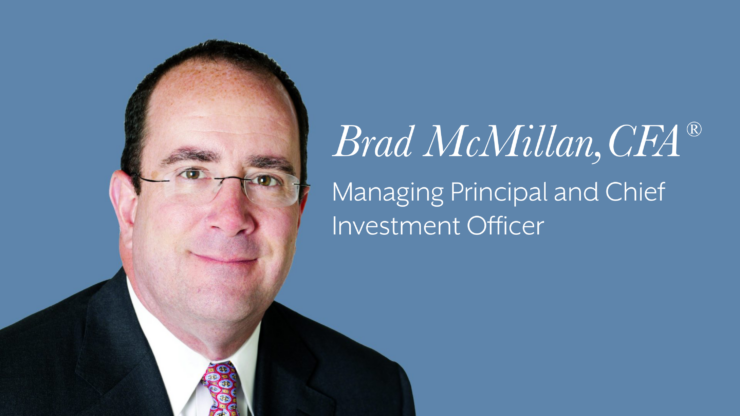SRI/ESG Investing: What You Should Know
February 27, 2019
Deciding how to invest can be complicated. Naturally, you want to choose investments with a good rate of return, but you may also want to invest in companies whose values align with your own. That’s where Socially Responsible Investing (SRI) comes into play.
What Is Socially Responsible Investing (SRI)?
Socially Responsible Investing means choosing investments based on positive social outcome as well as financial gain.
SRI is not a new phenomenon. It can be traced for centuries, from the 1700s when Quakers refused to take part in slavery, to avoiding “sin industries” like tobacco, alcohol and gambling and the promotion of Civil Rights in the 1960s. You can even see it today, when environmental concerns over global warming and climate change are prevalent.
According to US SIF, SRI has grown rapidly in recent years, with the total U.S.-domiciled Assets Under Management using SRI strategies increasing 33 percent from early 2014 to early 2016.
There are many ways to invest responsibly, and terms to describe it are often used interchangeably.
- Environmental, Social and Governance (ESG) investing involves factoring issues such as carbon emissions, labor standards, community relations and board composition into your investment decision.
- Ethical investing involves avoiding investment in industries that don’t align with your moral values. These can include the alcohol, tobacco and gambling industries, as well as companies involved in animal testing and human rights violations.
- Sustainable investing means targeting companies with good environmental practices and a lower carbon footprint.
Typical Client Profile
SRI attracts a wide range of investors, including high-net-worth individuals who invest as part of their retirement planning and institutions like nonprofit organizations, foundations and religious groups that seek to uphold their members’ values.
The CFA Institute calls it values-based vs. value-based investing. All investors pursue economic value, but some may place higher importance on moral values. They may avoid companies engaging in activities they find objectionable, such as making products that are harmful to people’s health or the environment. Or they may just have a desire to make a positive impact on society.
Another reason investors, particularly institutional investors, choose this type of investment is to manage risk and fulfill fiduciary duties to the goals and wishes of their clients.
How Can You Make Socially Responsible Investments?
There is a wide array of investment options available. However, investors should seek financial advice when deciding how to best align their investment decisions with their values.
- Mutual funds and Exchange-Traded Funds (ETFs) allow investors to gain exposure to several companies across a variety of sectors through a single investment. It’s important to research a fund’s investment philosophy, costs and performance (among many other screening criterion) to make sure they’re socially responsible and right for your goals.
- Separately Managed Accounts (SMAs) differ from mutual funds in that your portfolio is individually managed and tailored to your specific objectives. SMAs are more customized and therefore can be more expensive to invest in as well as require higher investment minimums.
Pros and Cons of ESG Investing
ESG investing allows you to feel good about your investment decisions. While there may be a belief that you won’t earn as much profit, it’s possible to still have high-quality risk-adjusted returns. According to Morgan Stanley, investing in sustainability has usually met, and often exceeded, the performance of comparable traditional investments. Pre-screening companies before you invest also lowers the risk of your investment taking a hit when scandals emerge.
There are some drawbacks. It can be time-consuming to find the right companies to invest in and your choices will be more limited. Portfolio managers may charge higher fees as they need to constantly monitor companies’ activities.
There’s a degree of subjectivity involved in ESG investing. It can be hard to define what is socially responsible; for example, investing in pharmaceutical companies that produce life-saving medicines but also participate in animal testing. It can also be hard to see material results. As such, you might consider investing purely for profit and donating some of that profit to charity.
We believe that SRI and ESG investing will become more widespread in the future as concerns for the environment and human rights continue to increase.
Please note: Investments are subject to risk, including the loss of principal. Because investment return and principal value fluctuate, shares may be worth more or less than their original value. Some investments are not suitable for all investors, and there is no guarantee that any investing goal will be met. Past performance is no guarantee of future results. Talk to your financial advisor before making any investing decisions.
Let the Certified Financial Planner® professionals at Williams Asset Management help with your wealth management needs. Whether you need comprehensive and holistic financial planning or investment management, we can help! We are fee-based, independent financial advisors located in Columbia, the heart of Howard County, Maryland. Schedule your complimentary consultation today by calling (410) 740-0220!
Share on social media:


